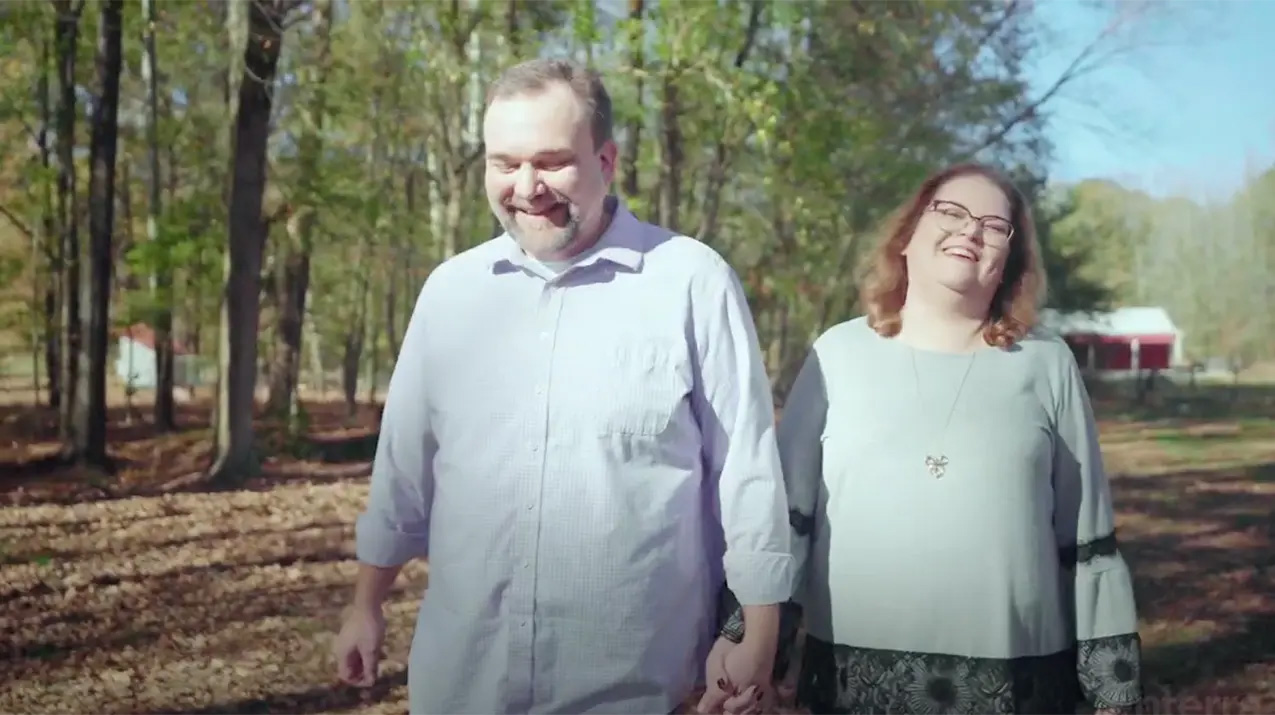Cindy’s story
Having lived with symptoms at an early age, Cindy search for years to find relief. Today with the help of Enterra Therapy, she’s a proud advocate for others living with gastroparesis.

Cindy, Enterra® Therapy patient
Cindy’s journey to relief: Q&A with a gastroparesis patient
Cindy, a native of Memphis, Tennessee, talks about her decades-long journey with gastroparesis—and how her relentless self-advocacy brought her to find relief through Enterra Therapy.
Cindy, when did your symptoms start, and when were you diagnosed with gastroparesis?
My symptoms started when I was 16. At first, I had no clue what was going on with me, I just knew that something was happening to my body. At that time I was told, “This is just something you’re going to have to live with.” And so I went for several years without any real answers.
I wasn’t officially diagnosed with gastroparesis until around 2000, when I was in my later twenties. And while that’s unfortunate, I know I’m not alone in that experience: it takes an average of 5 years before people are diagnosed with gastroparesis.
What treatments have you tried to help manage your symptoms?
After trying diet modifications, I was prescribed a drug called Motilium®. But after about ten years on Motilium, I started having side effects and my symptoms became increasingly difficult to live with.
What led you to consider other options?
At the beginning of 2020, I had been struggling with symptoms again for about five years. The nausea, vomiting, and pain were almost constant, and I could feel depression setting in.
I couldn’t go out to eat, I couldn’t be around my friends. I could hardly do anything but lay on the couch. I didn’t want to explain to people why I’m always running to the restroom or why I’m just never there.
At that point, my husband knew I was miserable. Everyone who saw me would take one look at me and say, “What’s wrong with you?” My pain and discomfort were just so obvious. It was awful.
The worst part was that I felt like I couldn’t share with my family—that I couldn’t be a part of life. And it really made me not want to be a part of life in general.
How did you find out about Enterra Therapy?
One night, I just got fed up. I thought to myself, “In this age of modern medicine, there’s got to be something out there that can help me.”
So I went online and typed in “Gastroparesis.” The first thing that popped up was Enterra Therapy – this thing called a gastric electrical stimulator. I read a little bit about it, and thought, “Wow. I wonder if this could work for me.”
What made you want to try Enterra Therapy?
I knew it wasn’t a cure for gastroparesis, and that it required surgery to implant a medical device, but I was truly open to anything that might help my symptoms and help me get my life back.
I was interested in the fact that it’s a device, not another medicine or diet modification, which I had already tried. I liked that it’s FDA-approved.* And I also liked that it can be customized to deliver the right amount of stimulation to help my symptoms, and that it could be removed or turned off if I didn’t like it.
So I made an appointment with my gastroenterologist and told him about Enterra Therapy. And he really didn’t know anything about it, but he said, “I’ll look into it.”
And for me that was an amazing moment, because that was something that none of my other doctors had done before. I had just heard so many times, “There’s nothing we can do for you.”
But at our next appointment, he came back and said, “Ok. Let’s do it.”
The glimmer of hope I felt when he said that—when I felt there was an option that could help me? It felt like Christmas morning.
What was your implant procedure like?
I got my implant in December of 2020, and for me, it was a simple procedure and recovery. I was in the hospital for 2 days and did not have any complications. I have five small incisions that were closed with medical super glue.
Like any surgery, I couldn’t lift anything heavy or do housework for several weeks. I took about 6 weeks off of work to heal completely. The biggest challenge during the recovery process was not being able to pick my dogs up!
Now, I can feel the device under my clothes sometimes, but it doesn’t hinder my daily life.
How has life been after receiving Enterra Therapy?
Going into this, I had no expectation that I would be one hundred percent cured, but I knew that I needed to take the chance for myself.
Enterra Therapy hasn’t cured me or solved all my problems, but it has helped make life livable. My nausea went from a 10 to a 5 or 6, and my vomiting went from a 9 to a 2 or 3. I still take an anti-nausea pill almost every day as a precautionary tool. I also keep a journal so I can document what my trigger foods are.
What advice would you have for someone when talking to their doctor about Enterra Therapy?
My advice would be: do your research first. Really ask yourself if this is the direction you want to go. Consider all of the benefits and risks associated with the therapy. If you need help, Enterra Medical (the company behind Enterra Therapy) has a ton of resources—brochures, videos, symptom trackers.
It’s also important to be open and honest with your doctor. Your doctor can help you decide if Enterra Therapy may be right for you.
Seek out a second opinion if you feel unheard by your doctor. You deserve a doctor who cares about you and is willing to think outside the box to help you manage your symptoms and live a full life.
What would you say to someone who’s considering Enterra Therapy?

I would say, think about what’s best for you. There are risks and benefits associated with a medical device implant that you should review and discuss with your doctor. Your friends and family may be with you on this journey, but you’re the one who’s living it.
If I would have known about Enterra Therapy twenty years ago, I would have gotten the procedure then. It’s made that big of a change in my life.
I tell people, “I know it’s scary to think about a device being implanted in you, but if it could help you live a better life, is it worth the chance?”
Most importantly, know that there is no cure for gastroparesis, so be realistic in your expectations and decision-making.
For me, after doing the research on my own, I knew this was the path I wanted to go down, but I didn’t take it with my eyes closed. I talked to my doctor and my family and we all decided that it was worth it to try.
And I don’t regret my decision at all. This device has changed my world. I feel like I have a life again. I can go out, I can do things. I can be with friends, I can plan a big Thanksgiving meal. My husband and I can go to our favorite Mexican restaurant every Friday night—they know us by name.
Quite frankly, I feel like I have a new lease on life. I’m excited about what the future holds for me, and I just want to have fun with life again. And Enterra Therapy has given that back to me.
Cindy’s experience is unique to her and individual results may vary.
Could Enterra Therapy be Right for You?
Answer a few short questions to see if you may be a candidate and get a downloadable guide to help you start a conversation with your doctor.
MKT-D-0003, Rev AB
IMPORTANT SAFETY INFORMATION
Enterra Therapy for treatment of chronic, resistant to medication nausea and vomiting associated with gastroparesis caused by diabetes or an unknown origin in patients aged 18 to 70 years: patients should always discuss potential risks and benefits of the device with their physician.
*HUMANITARIAN DEVICE
Authorized by Federal law for use in the treatment of chronic intractable (drug refractory) nausea and vomiting secondary to gastroparesis of diabetic or idiopathic etiology in patients aged 18 to 70 years. The effectiveness of this device for this use has not been demonstrated. What does this mean?
